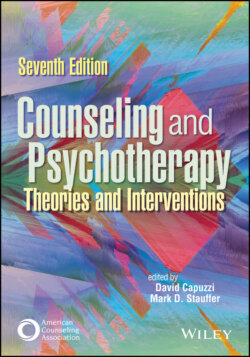Читать книгу Counseling and Psychotherapy - Группа авторов - Страница 92
Power
ОглавлениеThe construct of power, as well as an understanding of its role in human development and the social-cultural dynamics that influence a person’s beliefs, expectations, and experiences, is fundamental to the principles of RCT. According to this theory, power is defined as the “capacity to produce a change” (Miller, 1986, p. 198). Power can be expressed in one of two ways: (a) unilaterally, hierarchically, and destructively or (b) collaboratively, and with an intention to empower others. RCT refers to these two power dichotomies as power over and power with.
Exercising power over others involves maintaining one’s control by disadvantaging others. Dominant groups who follow a power-over way of relating use their roles, societal positions, and privilege to exercise power over people and groups who have less power. They empower themselves at the expense of others. Conversely, dominant group members who are mindful of their privileges, and the costs associated with exercising these privileges without concern for its impact on others, may engage in what RCT refers to as power-with relating. Power with creates collaborations, recognizes power differentials, and seeks to bring people up rather than suppress their potential or keep them down.
The appropriate use of power in counseling is a particularly salient construct, given the power differential inherent in the therapeutic relationship. Counselors who enter the relationship with the necessary knowledge, skills, and competencies (ACA, 2014) and an openness to the experiences of their clients position themselves to empower their clients and learn from clients about their respective needs and experiences (Duffey & Haberstroh, 2020). Rather than serving as expert, they respond to their clients with an appreciation for their struggles and a sense of radical respect (Jordan, 2018). This helps support a power-with relationship dynamic and increases the possibility that the therapeutic relationship will grow and be strengthened.
When counselors recognize the role of power and choose to use their power well, they refrain from carrying the image of the expert. Instead, they bring their training, knowledge, and education to the fore while allowing themselves to be authentic and open to being moved and changed through their relationships with clients. This allows for a distinctive form of mutuality critical to growth. It also creates a context in which mutual empathy (Miller, 1986) can occur (see Sidebar 2.4).
